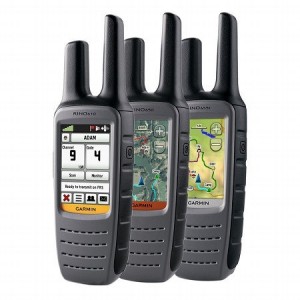For every job or hobby, the most important thing is to have the right tool. Surprisingly, most people seem to gravitate more towards what is convenient than what is best, and this can lead to some serious problems. Sure, your phone can do a lot of things including GPS, but that doesn’t mean that it’s good at all of those things. One of the things that I am constantly arguing is that auto GPS devices are better than smartphones, no matter what anyone says. And, unsurprisingly, I think that handheld GPS devices can also trump smartphones.
Handheld GPS devices are some of the most versatile GPS devices on the market. They can be used for hiking, backpacking, geocaching, kayaking, or any activity that takes you to the Great Outdoors. While many phone apps mimic the functionality of dedicated GPS devices, there are some things that a dedicated handheld GPS device does which a phone cannot, really.
1. They are rugged and water resistant
When you’re on the trail, you never know what’s going to happen. You need a device that can withstand sudden rainstorms, a fall to the forest floor, or being banged around in a bag. Sure, you could buy an expensive Otterbox or other rugged case for your phone, but it’s going to be harder to use and more awkward than a GPS device, which you can get with an IP67 rating and no functionality sacrifices.
2. They have field-replaceable batteries
Many handheld GPS devices use AA or similar batteries—the same kind you’ll probably already have with you for your flashlight. Which means one less thing to bring. Aside from the fact that most phones nowadays don’t have removable batteries, you’ll have to take off the fancy otterbox case you bought to prove me wrong on #1 in order to replace the battery. Also, you’ll have to carry a special battery just for the phone, only to have the life drain super quickly. GPS devices, by contrast, often come with much longer battery life so you won’t have to worry about charging it all the time.
3. They are designed for outdoor use
GPS devices are designed to be read in bright sunlight and often feature simple interfaces for when you’re out and about. You don’t want to have to squint at the screen to try and figure out where you are, or misread it and end up lost.
4. They get better reception in remote areas
Last, but not least, on the same note as the above, handheld GPS devices have much better reception than phones. Period. Some newer models, in fact, include the latest technology so that you can acquire (and keep) signal inside of canyons and dense canopy. Try and do that with your smartphone!
No matter how you slice it, GPS devices are better than smartphones when it comes to GPS functionality. Smartphones are like a jack-of-all-trades; sort of good at a wide range of things, but when you’re on the trail, miles from the nearest town or hospital, you don’t want sort of good, do you? Trust me. If you’re the outdoorsy-type, a GPS device will pay for itself.



I would add several additional points.
First, a handheld GPS can track at the time interval or distance that the user sets. I find that I want much more frequent track points if I am out hiking than if I am flying cross-country in a commercial airplane, even though I like to have tracks for each journey. And since I volunteer for a trail club that wants 3 second data for every trail it maps, I need to be able to manually set the recording interval to that level.
Second, a handheld GPS allows me to easily download the tracks I create onto software so I can analyze the data. If a friend wants to know how long a section of a hike would take to re-hike, I can easily do that with my saved data. I don’t believe that smartphone data is easily managed like that, and my saved library of hikes dating back to 2008 is of great use to me.
Third, I can create my own maps that I can download into my GPS receiver. I don’t know of a smartphone app that allows for that capability.
But mostly, I like that my smartphone doesn’t have to be turned off on a 12 mile hike or I risk killing the battery, like I would if my phone was the only GPS I carried with me. There is really no comparison.
One of the few smartphone advantages is the much higher number (in case of the Android and iOS) of the available map/navigation/tracking apps, if the “default” is not enough then you can easily find and try at least a dozen other.
One additional point from my side: for the speed/usability of the software/map check some videos about the device in use, the description and pictures is not enough. For example a Garmin GPSMAP 64s vs eTrex 30x (from 2015 Aug)
https://www.youtube.com/watch?v=faMTaQZ4MZ0
over the years, i felt that my garmin handheld gps receivers have always given me more accurate track data than my phone. and i may be the oddball out there, but i actually use my handheld when driving.
I know a couple people who do that, so I don’t think you’re an oddball. I wouldn’t advocate it, though, as it’s not quite as safe. Thanks for commenting!